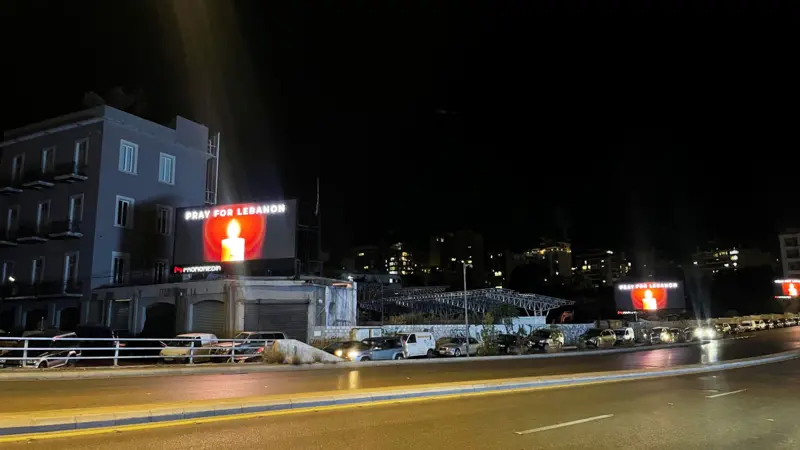Beirut's Silent Streets: How Conflict and Crisis Have Redefined a Once Vibrant City
By Noor El Hassan
Beirut’s Gemmayzeh Street, once alive with the hum of diners and late-night revelers, now feels like a distant echo of its former self. Tonight, the street is almost deserted. In one of the few remaining open restaurants, Sameer, 26, serves the few customers with a weary smile. “You know my home was destroyed today,” he says, his voice steady but his eyes betraying exhaustion.
Sameer’s family had lived in Burj el Brajneh, an area in southern Beirut that was hit by Israeli strikes earlier today. The Israeli Defense Forces (IDF) claim the strikes targeted Hezbollah infrastructure, but Sameer’s family, like many others in the area, had no affiliation with any political group. “We moved just a few days before,” he shares, his relief tempered by the knowledge that his home is no longer livable. “Two buildings next to ours collapsed,” he says, “and ours is so badly damaged we can’t go back.”
Just a few years ago, Gemmayzeh Street was filled with laughter and life. Coffee shops, restaurants, and bars thrived in this popular spot for locals and tourists alike. Sameer’s restaurant used to be one of the busiest on the block, especially on weekends. But tonight, only two tables are occupied—one by Sameer’s friends and the other by the restaurant’s owner, Mohammed, and his family, quietly playing cards.
“It’s like we just go back to square one over and over,” Mohammed says, shaking his head. His restaurant, like many others, was heavily damaged in the catastrophic port explosion that ripped through Beirut four years ago. It had taken years for the street to recover, but just when it seemed like life was returning, the conflict escalated, plunging Beirut back into uncertainty.
The once-bustling Gemmayzeh is now eerily quiet. Darkened storefronts line the street, and the few that remain open seem to have lost the vibrant energy that once defined them. Billboards that used to carry messages of peace—“Lebanon doesn’t want war”—now read “Pray for Lebanon.”
Outside a nearly empty shisha bar, a screen that used to play music videos now broadcasts endless news updates. The patrons are few, and their conversations are hushed, dominated by worry and fatigue. Beirut, a city that has endured so much, is once again under the shadow of violence and uncertainty.
As Sameer clears a table, he glances around the empty restaurant. “I don’t know if things will ever go back to normal,” he says quietly, reflecting on a future that seems more distant than ever.
For more updates on the evolving situation in Beirut and beyond, follow on Twitter/X at @dark_web24.

